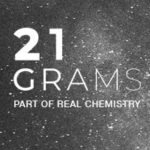What’s your background?
I’m a scientist by training, writer by passion, and storyteller by nature. I received training in clinical laboratory sciences and advanced training in immunology and oncology. I started my career as a regulatory Medical Writer and subsequently served in different companies as an associate director of scientific communications and medical strategy. The common theme that runs through all the different roles I have had is my passion for scientific storytelling.
Why did you move away from academia?
I decided to lean toward my strengths. Although scientific research seemed interesting, being in the academic setting taught me that the communication of scientific concepts and ideas to audiences of different backgrounds was my true calling. I decided to pursue that calling.
Is there anything you miss about academia?
No. Leaving academia was a healthy decision.
How did you get this job? Did you face any challenges when considering a move away from academia or applying for the role?
Moving away from academia requires one to adopt an industry mindset. To do this, I spoke with people who had made the transition to industry and asked them what things I needed to change about my mindset and behavior to make the transition to industry more seamless. When applying for my very first role in industry as a Medical Writer, the primary obstacle was that I had never had the job title of Medical Writer in the past. I had to rely on communicating my transferable skills and showing excitement for the role. It was a long and arduous process, but I eventually received an opportunity.
What motivated you to/why did you choose the sector you transitioned into?
In my mind, Medical Writing has the best of both worlds: science and written communication. Since I felt inspired by both these topics, I decided to start building a career in Medical Writing.
Did you think you had the skills required for your current position before you started? Were you right?
I did not think I had all the skills necessary for my current position; however, I knew I had some of the important skills that were listed. I feel grateful that the people who hired me saw me as someone who would potentially excel at the job.
How did your PhD prepare you for your current job? For example, what were the transferable skills that you developed during your PhD that are most relevant to your current job?
The ability to think critically has been the most relevant transferable skill. Also, the ability to break down scientific concepts and ideas, and explain it to audiences with varied levels of pre-existing scientific knowledge, was another important transferable skill.
Have you built a network before your transition to industry? How it helped you in the process?
I had built a professional network before I transitioned into industry. However, I did not receive any referrals, recommendations, or direct help from anyone in my network in finding my first role. It is critical to mention however, that many people in my network helped me prepare for interviews and provided guidance on how to transform an academic CV into an industry-ready resume.
Do you have Mentors who helped you in making the right career decisions?
I knew even before I transitioned that I wanted to build a career as a science communicator. I’m truly grateful for the fact that I met several amazing mentors after I transitioned into industry. These incredible people have helped guide and shape my career path.
Did you have any preconceptions about your sector that proved to be wrong?
I had underestimated the range and depth of the medical writing field. I quickly realized that the field is limitless and is continuing to grow and evolve.
Can you describe a typical week in your job?
Each day is different. However, here are a few commonalities:
- Liaising with pharma and biotech scientists and leaders to get a sense of their strategic communication, promotional and medical educational goals (for e.g., launching a product in a competitive market)
- Strategizing methodologies and tactics to address those goals and composing strategic imperatives (e.g., determining what helps the upcoming product stand out among competitors and ways we can get the market to pay attention to the new product)
- Planning for and implementing those strategic imperatives to help our clients succeed in the market (e.g., successfully launching the product at the right place and at the right time for maximum impact and visibility)
What is the workplace culture like? Please include comments on work-life balance, flexibility, remote working?
Culture: In a word, I would describe the workplace culture as “inclusive”. It is truly fascinating to see people from different cultures and backgrounds coming together and working with one shared vision: to make healthcare more human.
Work life balance: Although there are certain times when late night and weekend work is required to meet a critical launch milestone, this does not happen frequently.
Flexibility and remote working: A sizeable proportion of employees at my company work remotely. However, there is always the option of going into the office for those who prefer a formal workplace. Supervisors and leaders in the company are open minded when it comes to remote work.
Do people with a PhD frequently get hired in the company/sector?
Yes, to both. People with a PhD frequently get hired into the medical strategy team at my company, and people with a PhD frequently get hired as medical writers in the industry as well.
What are your favourite parts of your job?
I feel inspired by how words can change the world. Years ago, a writing instructor had said to me, “the purpose of scientific writing is to introduce new ideas or to change existing ideas.” Those words often echo in my mind, and I feel grateful for the fact that I get to introduce new ideas and change existing ideas through my work. That’s what inspires me most about the job.
What are your reflections on your career path?
Life only makes sense in retrospect. When I look back at my career path, the one lesson which stands out is that the skills that helped me break into the industry are different from the skills that helped me grow within the industry. Here’s an example to illustrate that lesson:
My first role was offered to me based on my writing technique and teamwork skills. My second role was offered based on scientific storytelling and mentoring skills, and my third role was offered to me based on strategic thinking skills.
In reflection, it is a reminder that in addition to honing our existing skills, we must also be open to learning new skills because often, those new skills are what help us reinvent ourselves and propel our growth in the industry.
Do you have any advice for current graduate students and postdocs considering a career outside of academia?
Begin learning about interpersonal skills. Use free outlets such as blogs, LinkedIn, and YouTube to gather as much information as possible about how to improve interpersonal skills.
What do you know now that you wish you’d known when exploring a transition?
The determinants of success in academia, such as the number of publications, pipetting proficiency, technical prowess etc. are not determinants of success in industry. To become a successful, high functioning industry professional, one must actively focus on improving their people skills and interpersonal skills.
Can you recommend any relevant resources, organizations or events that might help somebody new to the sector find out more about it?
To learn more about Medical Writing, look up the American Medical Writers Association. In addition, watch interviews featuring different types of medical writers at https://networkpharma.tv/. Over the past few years, I have been uploading videos on YouTube about the life and career of a medical writer (stories told from my experience and perspective). Watch them here: https://www.youtube.com/c/AnandDevasthanam



